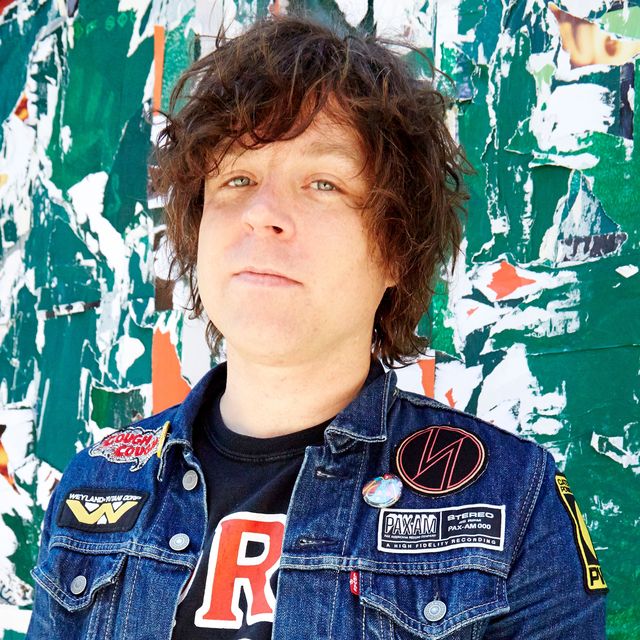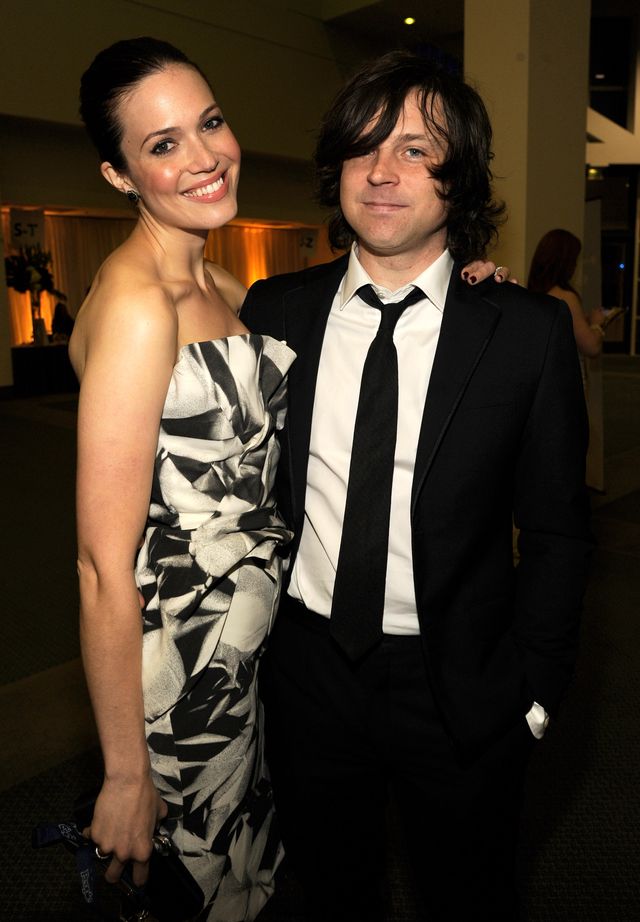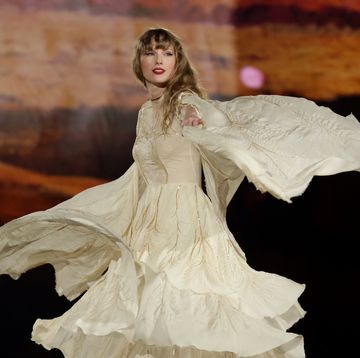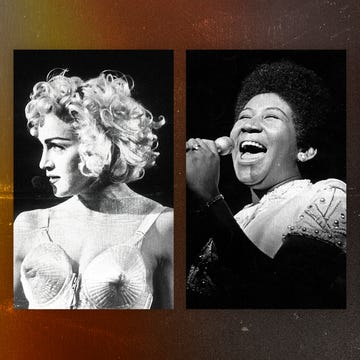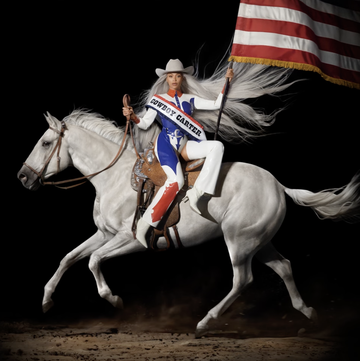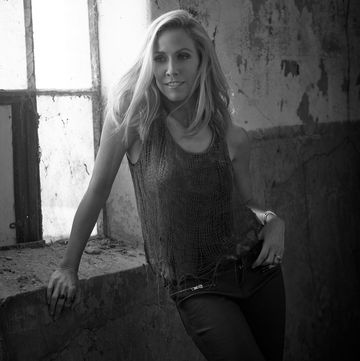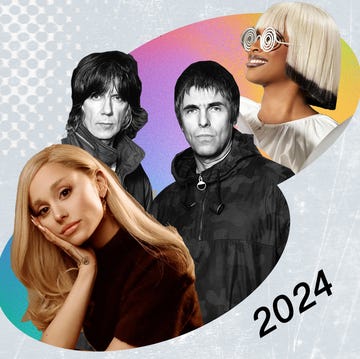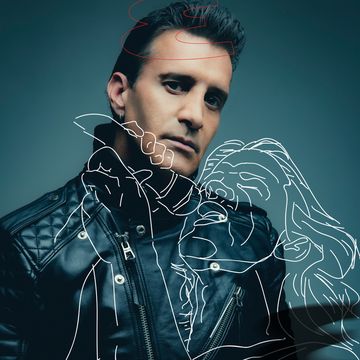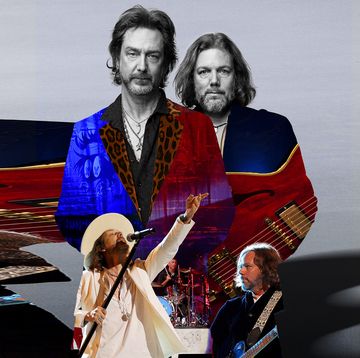“And tell me that your mom is not gonna kill me if she finds out we even text,” a then 40-year-old Ryan Adams allegedly texted Ava, a young, Midwestern teenager he’d promised he could help make a star. This was part of a damning New York Times article that accuses Adams, now 44, of sexual misconduct and emotional abuse. Several women, including the rocker’s ex-wife Mandy Moore, his ex-fiancée Megan Butterworth, and indie-folk breakout Phoebe Bridgers, claim Adams dangled their superstar dreams in front of them to gain their confidence and isolate them from others in the industry, turning vindictive if and when they spurned the sexual advances that followed.
Ava was 14 when she began dialoging with Adams online. She lived in Ohio but the bass player was routinely making trips to New York for auditions and gigs. In his earliest messages—the Times reviewed more than 3,000 texts he sent the then-minor—“the star floated big ideas about her career prospects,” says the report, before a decided shift in tone. Over a nine-month period, when Ava was 15 and 16, Adams and Ava allegedly engaged in graphic texting, phone sex, and, Skype calls where, as Ava says, Adams exposed himself. “If people knew they would say I was like R Kelley [sic],” he wrote following one such exchange.
Adams categorically denies any inappropriate relations. He does so throughout the Times piece via his lawyer, and in the wake of its publishing he posted his response on Twitter: “The picture that this article paints is upsettingly inaccurate,” he wrote. “Some of its details are misrepresented; some are exaggerated; some are outright false. I would never have inappropriate interactions with someone I thought was underage. Period.”
Adams did not respond to Esquire's request for comment.
The parallel between Adams and R. Kelly—that Adams, himself drew—is deeply upsetting. Most of the accusations against the 52-year-old R&B star are much different. Kelly has long standing allegations of pedophilia and sexual abuse against him, as well as claims that he runs a sex cult in his homes. This year, a six-part Lifetime doc, Surviving R. Kelly, laid bare a history littered with statutory rape allegations, which Kelly has denied.
But something you cannot escape when listening to the accounts of these women is how interactions with these men—usually but not always older and certainly more powerful—stifle their ability to dream. Save for Aaliyah, none of the women who revealed abuse to Lifetime have gone on to pursue music, despite that being the very reason for their original interactions with Kelly. Andrea Kelly was forced into an isolated retirement when she—then a charismatic, talented dancer— began her 13-year marriage to the singer.
“Something changed in me that year,” singer-songwriter Courtney Jaye, now 40 but 35 at the time of her contact with Adams, says to the Times, recalling a time “Hurricane Ryan,” as she calls him, took advantage of her during a writing session. “It made me just not want to do music.”
Moore corroborated many of the claims against Adams in the Times article.
“You’re not a real musician,” Moore says he would say to her, “because you don’t play an instrument.” She did not release a single song or album during her seven-year marriage to the star.
Ava has not played a single gig since her relationship with Adams ended. It “just totally put me off to the whole idea” of being an artist, she told NYT.
When Bridgers first gained traction, releasing a trio of songs via Adams's Pax-Am label, Adams was heralded as her creator and credited for her success. She frequently had to discuss him in interviews. As Rolling Stone reported, she has said that her song "Motion Sickness" is about Adams.
"I faked it every time but that's alright," she sings on the track. "I can hardly feel anything/I hardly feel anything at all." Later, a lyric recognizes their 20-year age difference. "And you, you were in a band when I was born."
“What you experience with him—the treatment, the destructive, manic sort of back and forth behavior—feels so exclusive,” Moore added to her account. “You feel there’s no way other people have been treated like this.”
Unfortunately, as we learn time and time again, that’s not true at all. As each story like this comes to light, so too does the recognition that such interactions are commonplace. "Proud of these brave women for speaking up," country singer Margo Price tweeted Wednesday evening. "This kind of thing happens far too often in the music business. We’ve all had enough."
Music critic Ann Powers, who was interviewed in Surviving R. Kelly, echoed the sentiment: "Not shocked," she wrote, "also I've heard every detail of this story in composite about numerous other men in the biz. Yeah, from the underage girl to the gaslighted partner. Every. Detail."
Think of the women who've "made it," and consider what they must have endured. And then think of those who were unable, and the art that we've never gotten to experience.
The #MuteRKelly movement is in full effect now, with radio stations agreeing to no longer play the star and venues agreeing to stop hosting his concerts. But it came too late, and at the expense of too many. And it should be noted that none of those properties—his label, included, who finally dropped the star in January—stood up for the women at a time when Kelly was filling arenas or selling millions of records. (Sony still profits from his back catalog, which is worth far more than any future releases, of course.)
Moving forward, we must demand that the fallout comes more swiftly for those exposed.
